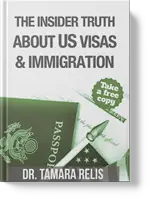Some people stand out in their field not just for their skill, but for their extraordinary achievements. Whether it’s a scientist making groundbreaking discoveries, a business leader driving innovation, an athlete breaking world records, or an artist captivating audiences worldwide these individuals shape industries and inspire others. For them, the United States offers not only recognition but also unique visa pathways to live and work in the country.
The extraordinary ability visa category encompasses several immigration options designed to attract top talent from around the globe. These visas allow exceptional professionals to share their expertise, contribute to the U.S. economy, and often pave the way toward permanent residency. But while the opportunities are exciting, the eligibility criteria are demanding, and the evidence requirements are rigorous.
Understanding the differences between these visa types and how to present your accomplishments convincingly is key. With the right approach, your exceptional talent can become your ticket to a thriving career in the United States.
What Is Considered “Extraordinary Ability”?
Under U.S. immigration law, extraordinary ability means you’ve reached a level of expertise indicating that you are one of the small percentage who have risen to the very top of your field. This standard applies in the arts, sciences, education, business, or athletics. Proving this status requires substantial evidence, such as major awards, published work, press coverage, or original contributions of significant importance.
Key Visa Options for Extraordinary Ability Professionals
O-1 Visa: Nonimmigrant Route for Top Talent
The O-1 visa is for individuals with extraordinary ability in the sciences, arts, education, business, or athletics, or those with a demonstrated record of extraordinary achievement in the motion picture or television industry. It’s a non-immigrant visa, typically granted for the duration of a specific project or employment period. O-1 holders can work on multiple engagements if structured correctly and renew their status indefinitely as long as they maintain qualifying work.
Building a Strong Extraordinary Ability Case
Success in extraordinary ability visa applications is built on compelling evidence. You’ll need to demonstrate that your accomplishments are not only significant but also recognized by others in your industry. This often involves a combination of official documentation, letters from industry experts, press coverage, and proof of high-profile roles or memberships in prestigious organizations.
Presentation matters as much as substance. An immigration lawyer experienced in extraordinary ability cases can help curate and organize your evidence to align with the exact legal criteria, increasing your chances of approval.
Why Choose the U.S. as Your Next Stage?
For extraordinary professionals, the U.S. is not just a destination, it’s a global platform. From Silicon Valley to Broadway, from major research hubs to international sports arenas, the U.S. offers unparalleled opportunities to apply your talent, expand your network, and access resources that can take your career to new heights.
How Relis Law Supports Extraordinary Ability Applicants
At Relis Law, we’ve worked with artists, scientists, entrepreneurs, and athletes to navigate the complexities of O-1, EB-1, and other extraordinary ability visas. We help identify the strongest evidence, connect with credible industry references, and ensure that every part of your application tells a consistent and persuasive story. Our “Rule of 4” review process ensures no detail is overlooked.
Your Talent Deserves a Global Stage
Extraordinary ability is rare and the U.S. immigration system recognizes its value. Whether you’re seeking a temporary visa to work on a groundbreaking project or a permanent move to advance your career, there’s a path designed for you.
With the right legal guidance, your skills and achievements can be transformed into a compelling case that opens doors to opportunity. At Relis Law, we’re ready to help you step onto the U.S. stage with confidence, backed by a strong, well-prepared application that reflects the true extent of your talent.
FAQ
How long does it take to get an extraordinary ability visa?
O-1 visas can be processed in weeks with premium processing, depending on the USCIS workload and whether premium processing is utilized.
Dr. Tamara Relis
Latest posts by Dr. Tamara Relis (see all)
- When Following the Rules Isn’t Enough: The Reality of Immigration Detention - December 12, 2025



